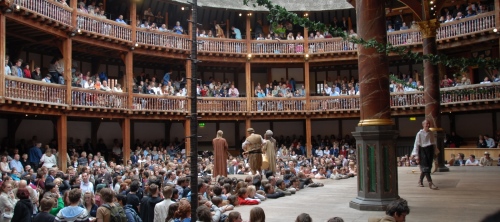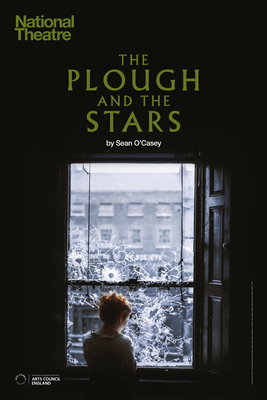
Théâtre ()
De Sean O'Casey

Plough and the Stars (The) (2016-07-Lyttelton Theatre-NT-London)
Type de série: RevivalThéâtre: National Theatre (Londres - Angleterre)
Salle : Lyttelton Theatre
Durée : 2 mois 3 semaines
Nombre :
Première Preview : mercredi 20 juillet 2016
Première : mercredi 27 juillet 2016
Dernière : samedi 22 octobre 2016
Mise en scène : Howard Davies •
Chorégraphie :
Producteur :
Avec : Stephen Kennedy, Justine Mitchell, Tom Vaughan-Lawlor, Adam Best, Cavan Clarke, Siobhan Cullen, Kieran Gough, Lloyd Gough, Grainne Keenan, Padraig Lynch, Lucia McAnespie, Caolan McCarthy, Niamh McGowan, Justine Mitchell, Christopher Patrick Nolan, Roisin O'Neill, Richard Pryal, Judith Roddy, Eoin Slattery, Josie Walker, Fionn Walton
Commentaires : Sean O’Casey’s great epic drama, The Plough and the Stars, caused riots when it opened at the Abbey Theatre in Dublin in 1926, ten years after the 1916 Easter Rising…
Commentaires longs: Sean O’Casey’s great epic drama, The Plough and the Stars, caused riots when it opened at the Abbey Theatre in Dublin in 1926, ten years after the 1916 Easter Rising, a six-day military offensive – launched by the revolutionary Irish Republican Brotherhood (IRB) – that sought to gain complete independence from the British Crown. The Easter Rising attack on key buildings in Dublin, most famously the General Post Office, caused hundreds of civilian deaths and, following the British Army’s crush of the rebellion, resulted in the immediate executions of its major players, most famously Patrick Pearse and James Connolly. Some background knowledge of O’Casey, who was himself a member of the IRB before becoming disillusioned with its nationalistic principles, helps to understand the disturbing effect of The Plough on Irish Republicans in 1926. In particular,The Plough portrays the Irish patriot as a misguided fool, highlights the violence, poverty and bickering that distract the urban poor from rebelling against their squalid conditions, and ridicules the sacred image of a revered Republican hero, Patrick Pearse. But as the play unfolds, it also expresses deep compassion and concern for the 1916 revolutionaries and for the inhabitants of a Dublin tenement where the action takes place. One imagines that O’Casey’s staunch belief in workers’ rights, and for a just world for all working classes, compelled him to write The Plough and the Stars which is the third play of his Dublin trilogy: the first being The Shadow of a Gunman (1923), the second Juno and the Paycock (1924).
Presse : "Sean O’Casey’s 1926 play keeps a remarkably chipper tone, before descending into predictable tragedy. Sadly, when the blows come, they fail to move much; when all that’s gone before is strained humour and crude stereotypes, it’s hard to care much for this Dublin family and neighbours." Holly Williams for the Independent
"From a slowish start the drama gathers in intensity to a final act of harrowing brilliance." Jane Shilling for The Telegraph
"The women are exceptionally strong in this production of O’Casey’s great Easter Rising drama, which draws out the complex humanity of its characters." Michael Billington for The Guardian
"The play is an ensemble piece, and every character has a moment in the spotlight. But some of the droll minor ones seem caricatures, and the drama takes too long to exert its grip. Still, Judith Roddy impresses as energetic Nora, desperate for her new husband Jack not to take part in the uprising." Henry Hitchings for The Evening Standard

.png)
.png)




